The Failing Rights of America
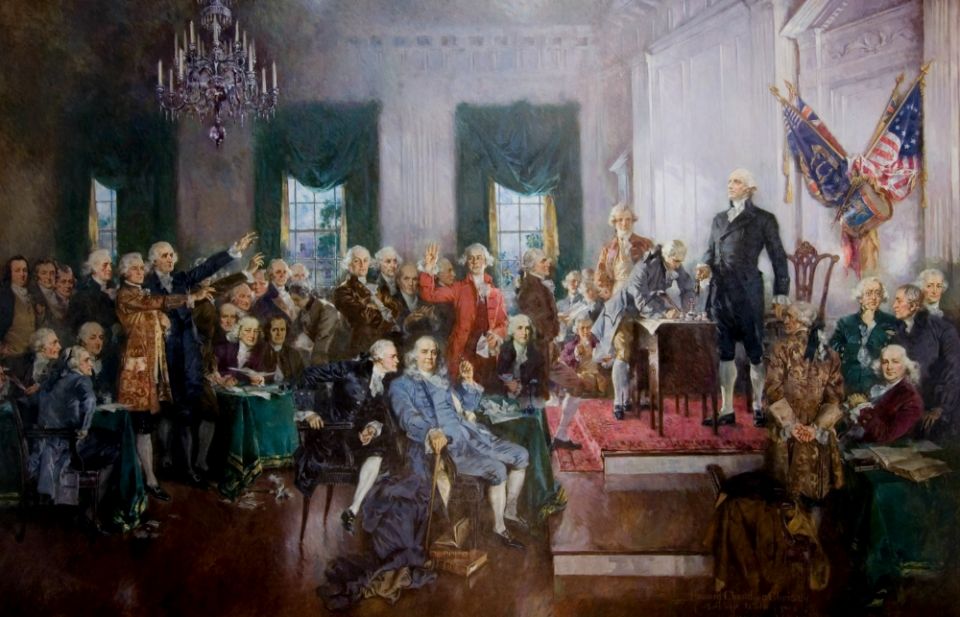
Abstract
At the beginning of our nation, our founders laid the groundwork of what has become known as the law of the land some 200 plus years later. This groundwork was no easy task and did not happen all in one day. There were debates, arguments, even political threats at every juncture, although people want to believe our founders in a glorious all-encompassing approval wrote and signed the Constitution of the United States of America. However, this action was not what had happened. There were disagreements and compromises throughout the process, which took a more extended period than even our founders would have liked. In the end, it came to one section that allowed the passing of the Constitution. That section was the Bill of Rights, and these rights were thought to be paramount by some, while the opposition believes they were redundant and unnecessary. Initially, when it was first presented in 1789, the Bill of Rights had 12 amendments. Then in 1791, when it was ratified, only ten amendments remained. All our founders agreed in the end that the Bill of Rights they ratified was robust and should last the test of time. For the most part, this is true; however, as time progresses, the interpretation of these amendments and our fear of the changing world of violence and lawlessness has caused that interpretation narrative to come into question as to whether or not the Bill of Rights are as strong today as they were so many years ago. Venturing through America's historical archives has left an impression that our rights in America are failing to protect as they were designed. Fear, greed, and power have dominated the political stigma to the point that they have allowed the Bill of Rights' validity to be violated under a mirage of false securities. Illuminating these circumstances helps prevent the erosion of our founder's objectives, thus allowing justice to prevail as guaranteed.
The Failing Rights of America
The Bill of Rights was one of the fundamental provisions added to the Constitution, which was designed to protect American citizens' rights specifically. On the surface, this historical achievement seems like a fantastic achievement for democracy. However, below the surface, one can look into the crystal ball of recorded history and conclude that these "Parchment Barriers" (Solomon, 2018) are failing to protect everyone in America. This failing of rights, partly because of political advantage, partly because of a given bias, and partly of misunderstanding, misleading, and miscommunication has fractured the Bill of Rights' fundamental purpose, which is the protection of "We the people."
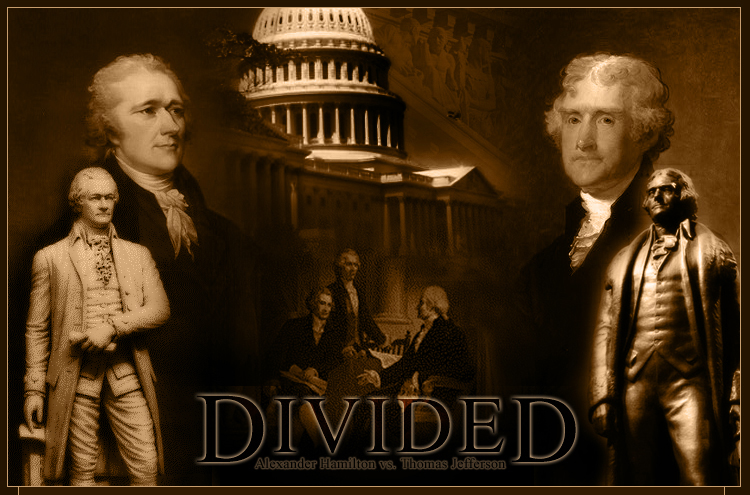
From their conception, in 1787, the Bill of Rights have been woven in controversy. James Madison writing to Thomas Jefferson, explains his concerns due to extreme opposition against the Constitution's ratification. This opposition was led by George Mason, who was the leading anti-federalist in a debating charge to have a Bill of Rights included in the Constitution as a set of amendments (Biography.com Editors, 2020). The federalist party believed these amendments were not necessary. Mainly because they were reserved by which federal powers were granted. It was, therefore, unnecessary to enumerate these rights as amendments. In some letters between Jefferson and Madison before the ratification of the Bill of Rights, Jefferson was concerned as to why they were not included and believed it would be wise to include them. Madison also came around to believe in agreement that there needed to be a strong Bill of Rights and relayed to Jefferson he would consider their inclusion. In keeping his consideration, promises made, Madison became the chief writer of the Bill of Rights. However, he also informed Jefferson that the Bill of Rights might become little more than "Parchment Barriers" mainly because even though humans have written laws and rules throughout history, they have also broken these laws and rules, often by the same people who wrote them. Basically, Madison said these Bill of Rights were not worth the paper they were written on because they most likely will be broken (Solomon, 2018).
Well, as it turns out, Madison was correct; these Bill of Rights would be broken time and time again. In fact, it took little time at all to break one of these rights that were the new law of the land. In the late 1700s, a little-remembered person in history named Benjamin Franklin Bache began a newspaper called the Aurora. This newspaper targeted federalist party supporters in trying to reveal their beliefs of corruption among the federalists. This event started a firestorm of press from both the federalists and anti-federalists. Each other was trying to control the narrative and discredit the other. This action brought unimaginable opposition against the current standing president John Adams. Adam's wife and others believed Bache was the chief conspirator of sedition that was aimed at harming the government. As tempers raised and harsh words were exchanged, efforts were being made to bring Bache to justice, which led to the infamous Sedition Act of 1798, which restricted the freedom of the press and free speech (Collins, 2020). Later on, in history, this was followed by the Sedition Act 1918. The United States Supreme Court, of course, repealed both laws as unconstitutional, but some provisions remain alive in the original Espionage Act that is still enforced today (Boyd, 2009). Case after case of first amendment right violations have entered the Halls of the United States Supreme Court and have been decided. Many of which were determined to be a violation of rights. Therefore, it seems at least the first amendment has been a "Parchment Barrier."
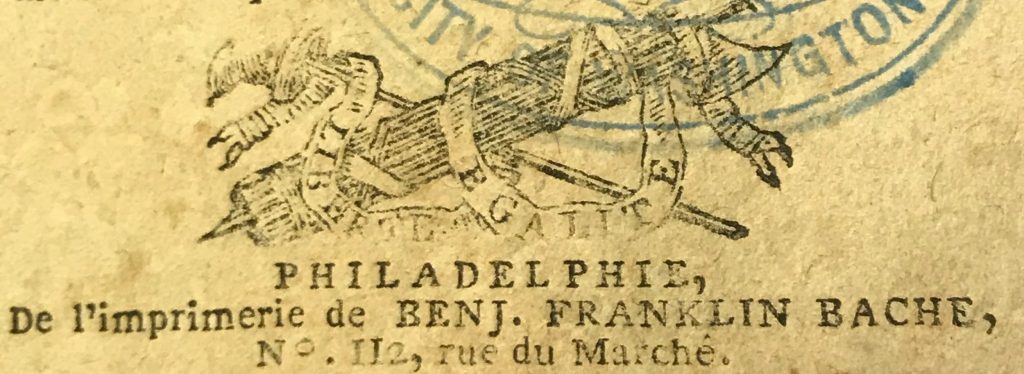
In an article printed by the New American Magazine, its writer went into great detail to claim that every article of the Bill of Rights has been violated throughout the United States of America history and list those violations and gives website links to the information. One crucial factor the article seemed to portray was how laws that violate rights are made to protect a bias, advantage, or misunderstanding that a particular group in history wanted to be protected. Whether enacted by national, state, or local legislators, this so-called protection still violated others' rights who may have been affected by that protection. The writer also quotes a British Parliamentarian who was in the House of Commons in 1793 who said, "Was it necessity that which had always been a plea of every usurpation? Necessity was the plea for every infringement of human freedom. It was the argument of tyrants; it was the creed of slaves" (Eddlem, 2014). Yes, one could argue that necessity has often turned civil liberties amended into the Bill of Rights into simply "Parchment Barriers."
Violations of rights do not stop with the first amendment. The fourth amendment continues to get violated against American citizens. Here the words "Illegal search and seizures" take on a whole new meaning as some police, FBI, CIA, and other law agencies have seized a "Gold mine" of property from citizens who were suspected of a crime, later to find out they had committed no crime. However, the seized property is kept by those who did the seizing (Sullivan, 2014). Another wild abuse of these fourth amendment rights is when there is something in a raid seized because a crime was presumably committed, only to find out later the person they accused was a case of mistaken identity. In such cases, our justice system says because the law agency "Believed" this was the right person, then it was a legal search and seizure, even though the person they accused was not the same person on their warrant. Therefore, they legally can keep all property seized (Simms, 2017). The rise of these rights violations has also given rise to activists. Activists like Benjamin Franklin Bache dared to oppose those whom he believed were violating people's rights. The war on right violations continues throughout American history. Even today, we see the march goes on as activists advocate against DNA obtained illegally (Dickerson, 2019) to covid-19 restrictions (Napolitano, 2020). However, one thing is exact; rights do and will be violated, even by those sworn to protect such rights.
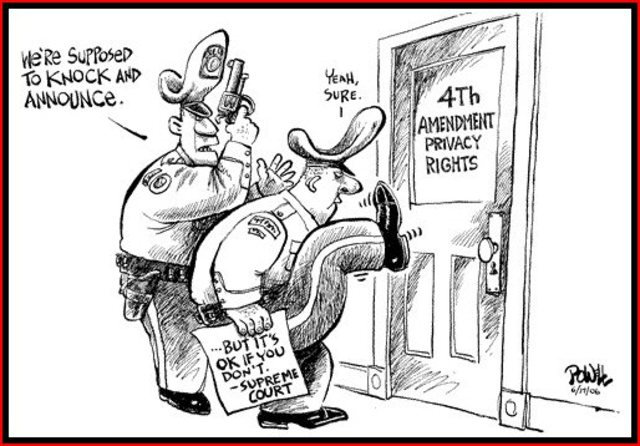
There have been many times in our history where we let fear and prejudice dictate the narrative on human rights. From the Martin Luther King Jr. era to the American Indian era, we have seen so many human rights violations that the United States Constitution's words echoed would never happen. The American Indians even though they were native-born to the continent of the United States endured countless acts of human right violations, the "Trail of Tears" being one of the worst, finally, in 1940 they were allowed to be called a citizen of the United States, but to this day they still struggle to be entirely accepted (OpenStax, 2020).
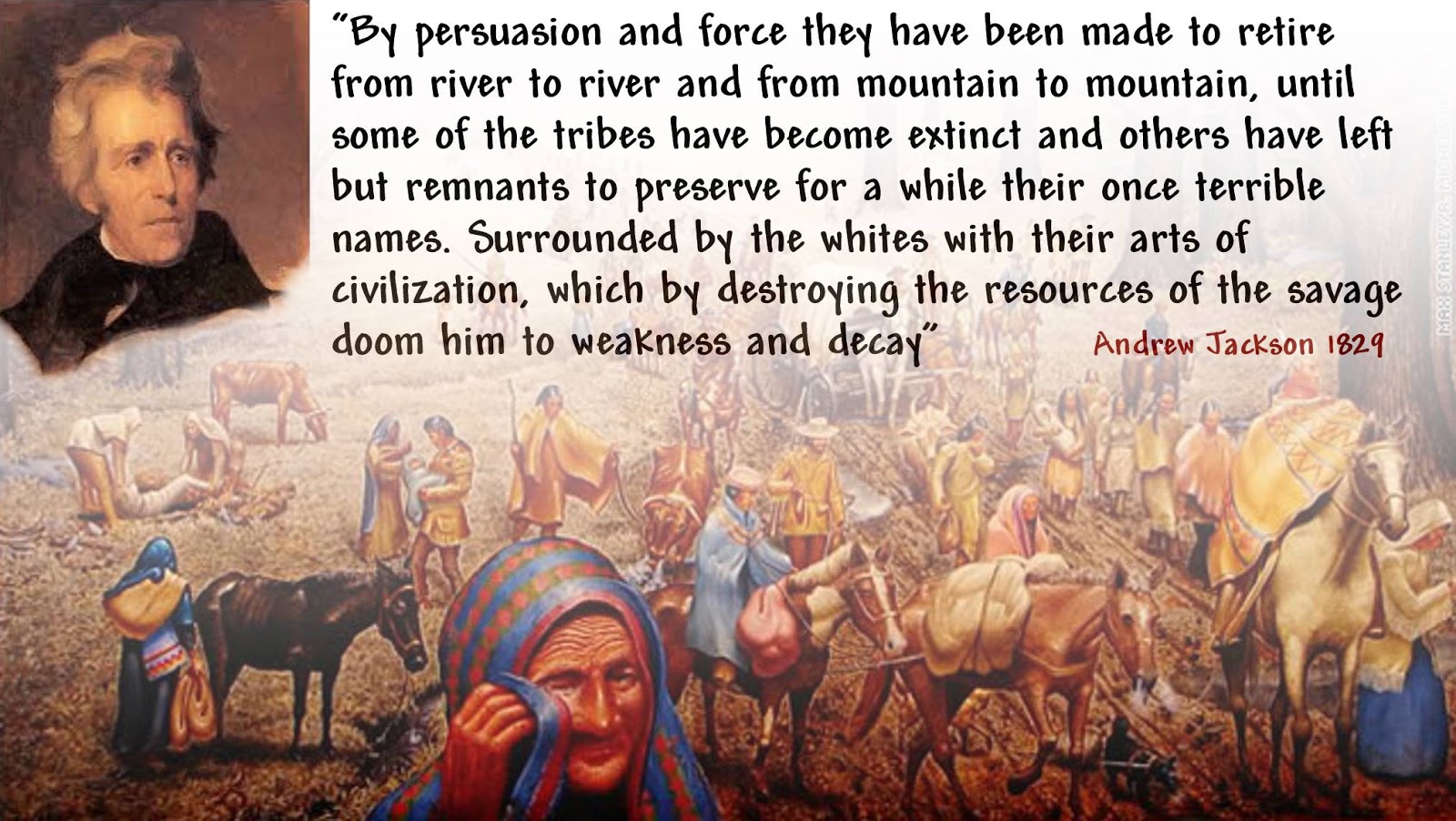
Many have forgotten a century ago; coal miners fought to improve their working conditions in West Virginia only to be mowed down by a shower of bullets by those who should have protected their rights. Little remains of the Matawan Massacre except for a small sign outside the former post office (Raby, 2020). Of course, we have to mention the Japanese American Internment Camps of 1942. President FDR signed executive order 9066 into law, and then what has been called one of the worst human rights violations in the 20th Century happened. Anyone that looked Japanese were herded like cattle and packed into small camps with minimal resources, the fear of Pearl Harbor was a powerful motivator that allowed Americans to be treated like animals (History.com Editors, 2020).
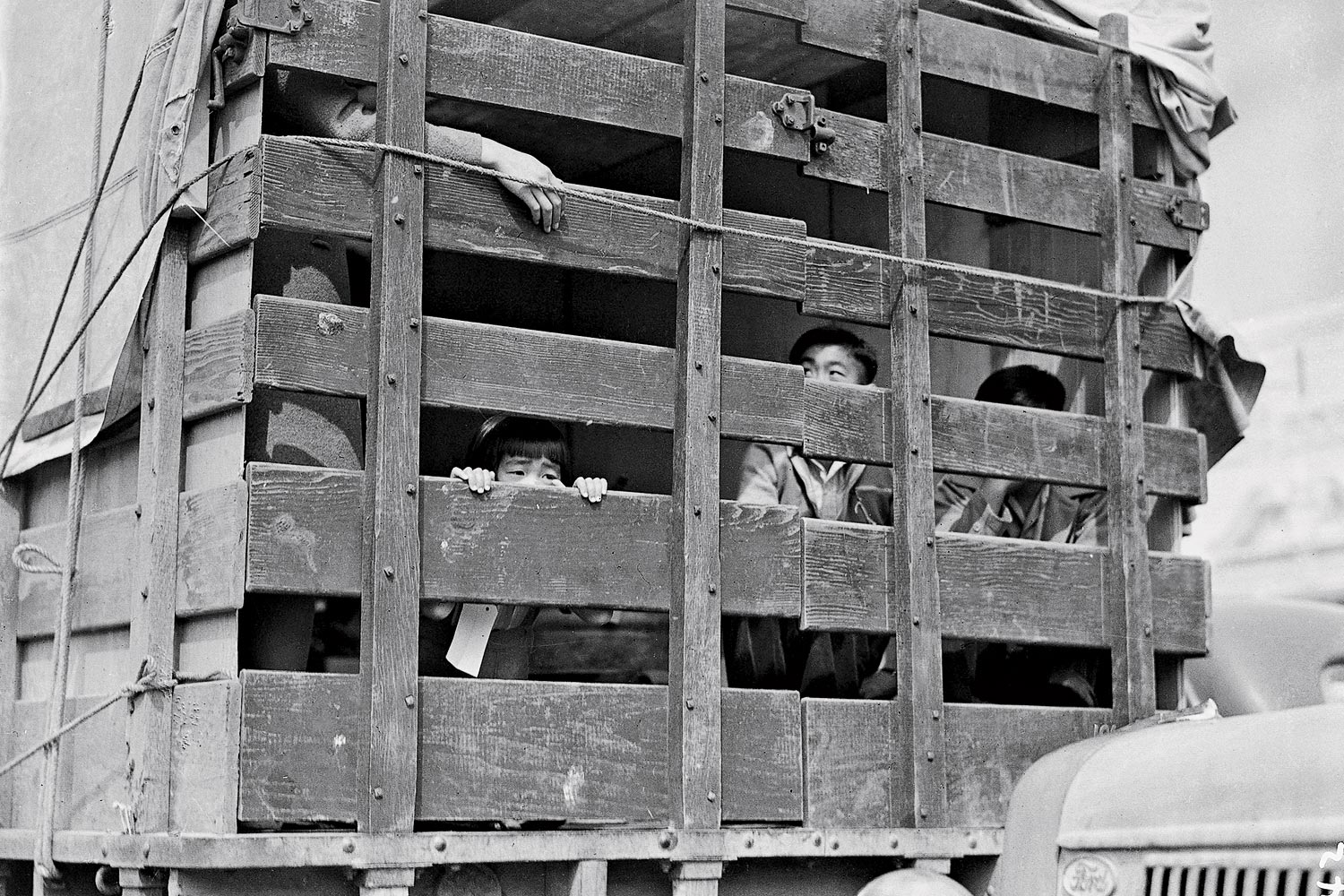
The last I wanted to mention is, of course, the human rights violations against black Americans. Many states practiced the Jim Crow laws during this time, and these laws were a direct violation of the United States Constitution. Nevertheless, somehow, they were allowed briefly to become law. Fortunately, we had activists like Martin Luther King Jr. bring this darkness to light, and eventually, all these violations were made illegal (FindLaw Team, 2020). One has to ask, as these violations were being conducted, what part of "Life, Liberty and the pursuit of Happiness" was the Americans it was being conducted against experiencing at that moment in time?
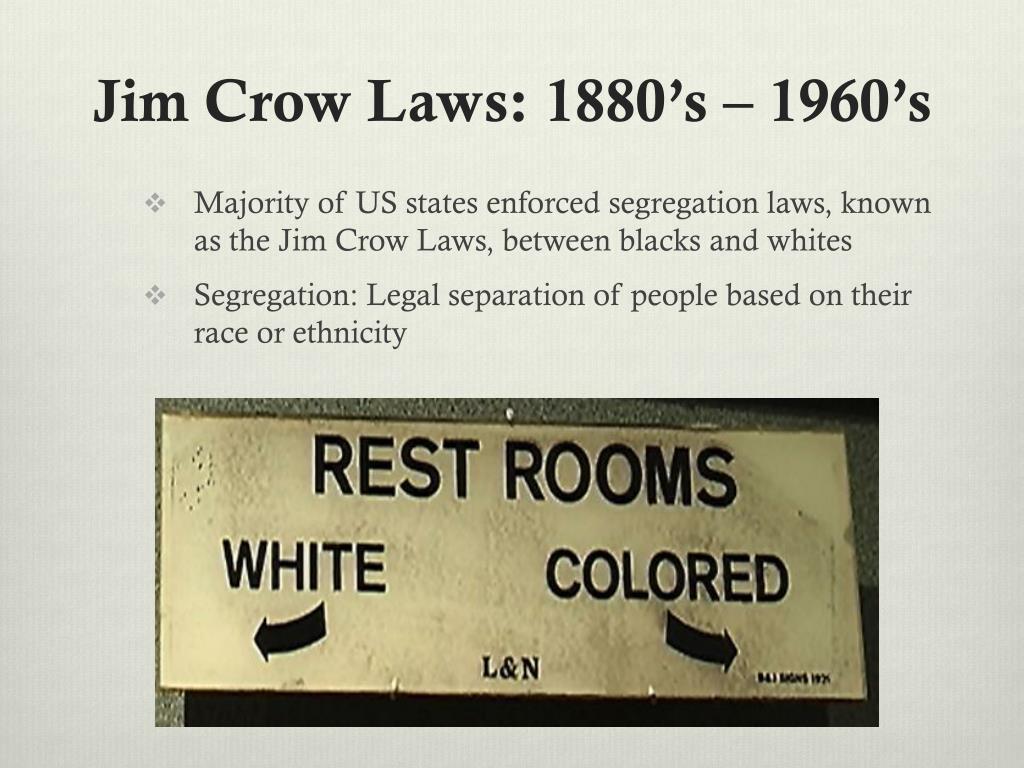
Over the years, Americans have had failing rights as rules are bent, violated, and ignored in order for some bias or advantage over another to take place. These violations started shortly after the Bill of Rights was ratified and continue into today. Many activists have risen to the occasion as they fight legitimately to protect the Bill of Rights as constitutionally written and hold them accountable for their actions. Hopefully, a hundred years from now, our great-grandchildren will remember the day when the last right violation took place and how Americans collectively stopped violations in their tracks as they upheld their constitutional right of governing as "We the People." Thus, realizing we are all in this together and no American should have a partisan advantage over another. For those famous words of our great Constitution states, "We the people of the United States, in order to form a more perfect union, establish justice, insure domestic tranquility, provide for the common defense, promote the general welfare, and secure the blessings of liberty to ourselves and our posterity, do ordain and establish this Constitution for the United States of America" (Krutz, 2017).
Works Cited
Biography.com Editors. (2020, September 24). George Mason Biography. Retrieved November 14, 2020, from The Biography.com website: https://www.biography.com/political-figure/george-mason
Boyd, C. L. (2009). Sedition Act of 1918 (1918). Retrieved October 25, 2020, from The First Amendment Encyclopedia: https://www.mtsu.edu/first-amendment/article/1239/sedition-act-of-1918
Collins, R. K. (2020, May 22). When Benjamin Franklin's Grandson was Jailed for Criticizing President Adams. Retrieved October 25, 2020, from First Amendment Watch: https://firstamendmentwatch.org/when-benjamin-franklins-grandson-was-jailed-for-critiquing-his-presi...
Dickerson, C. (2019, October 2). U.S. Government Plans to Collect DNA From Detained Immigrants. Retrieved October 25, 2020, from The New York Times: https://www.nytimes.com/2019/10/02/us/dna-testing-immigrants.html
Eddlem, T. (2014, February 26). A Legacy of Violations of the U.S. Bill of Rights, Hyperlinked. Retrieved October 25, 2020, from The New American: https://thenewamerican.com/a-legacy-of-violations-the-u-s-bill-of-rights-hyperlinked/
FindLaw Team. (2020, July 30). Jim Crow Laws. Retrieved November 14, 2020, from FindLaw: https://www.findlaw.com/voting/how-do-i-protect-my-right-to-vote-/jim-crow-laws.html
History.com Editors. (2020, February 21). Japanese Internment Camps. Retrieved November 14, 2020, from History.com: https://www.history.com/topics/world-war-ii/japanese-american-relocation
Krutz, G. (2017). American Government. Houston, Texas, USA: OpenStax.
Napolitano, A. P. (2020, March 25). What good are constitutional rights if they are violated when Americans get sick? Retrieved October 25, 2020, from The Washington Times: https://www.washingtontimes.com/news/2020/mar/25/what-good-are-constitutional-rights-if-they-are-vi/
OpenStax. (2020). Civil Rights for Indigenous Groups: Native Americans, Alaskans, and Hawaiians. Retrieved November 14, 2020, from American Government: https://courses.lumenlearning.com/amgovernment/chapter/civil-rights-for-indigenous-groups-native-ame...
Raby, J. (2020, May 18). 'Matewan Massacre' a century ago embodied miners' struggles. Retrieved November 14, 2020, from ABC News, Associated Press: https://abcnews.go.com/US/wireStory/matewan-massacre-century-ago-embodied-miners-struggles-70742420
Simms, C. (2017, February 8). Constitutional Rights against Unreasonable Searches Not Maintained in Cases of Mistaken Identity. Retrieved October 8, 2020, from Salt Lake Criminal Defense: http://www.saltlakecriminaldefense.com/2017/02/constitutional-rights-against-unreasonable-searches-n...
Solomon, S. D. (2018, February 2). Madison-Jefferson Letters on Advisability of a Bill of Rights, 1787-1789. Retrieved October 25, 2020, from First Amendment Watch: https://firstamendmentwatch.org/history-speaks-madison-jefferson-letters-on-advisability-of-a-bill-o...
Sullivan, L. (2014, November 10). Police Can Seize And Sell Assets Even When The Owner Broke No Law. Retrieved October 25, 2020, from NPR News: https://www.npr.org/sections/thetwo-way/2014/11/10/363102433/police-can-seize-and-sell-assets-even-w...

